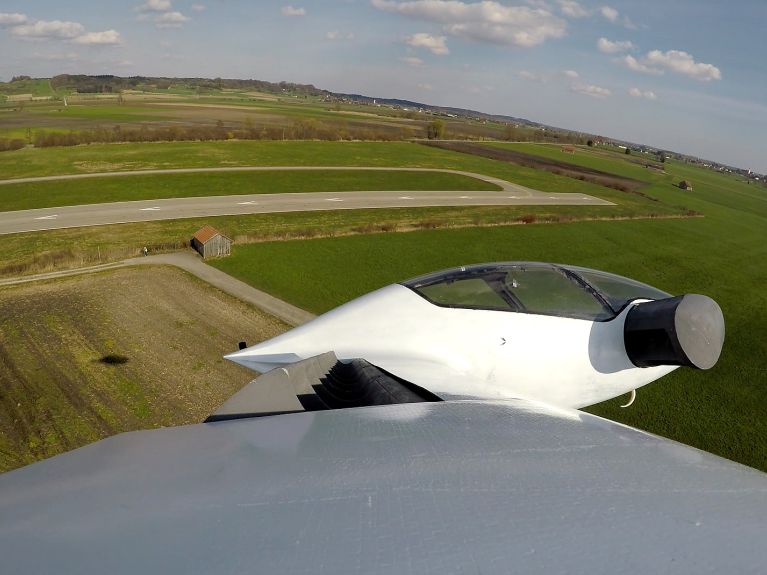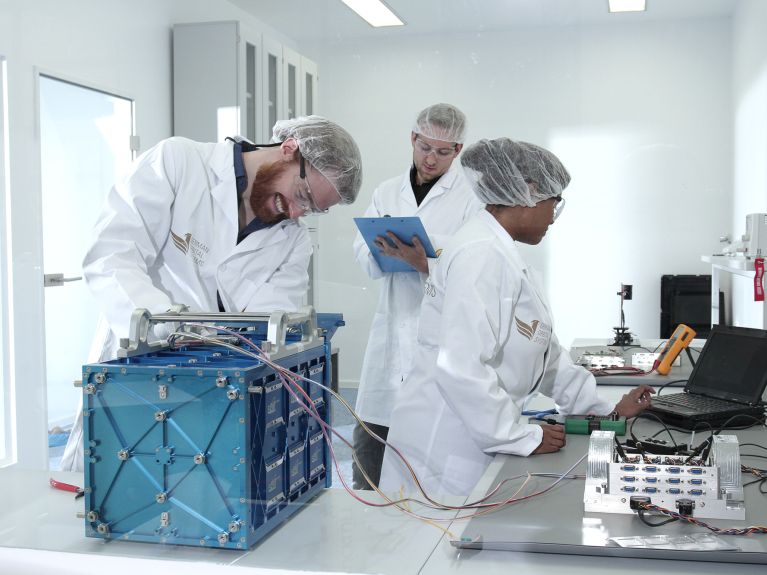Flying start-ups
To mark the German Aerospace Congress (Deutscher Luft- und Raumfahrtkongress) in Munich, we present three German start-ups whose founders want to revolutionize the industry.

Lilium
Germany. No traffic jams on the way to work – the dream of all commuters. The team at Lilium, a start-up from Munich, has the vision that commuters will fly to work by air taxi in the future. Problems like traffic jams and long journeys would then cease to exist. The flying taxi is expected to travel 70 kilometres in just 15 minutes. Daniel Wiegand, Sebastian Born, Patrick Nathen and Matthias Meiner founded the company in 2015. So far, they have completed test flights with a prototype. They plan to stage first manned flight in 2019, and by 2025 the team hopes anyone will be able order a Lilium air taxi at the press of a button.

Wingcopter
Two students from Darmstadt want to revolutionize aviation. Jonathan Hesselbarth and Tom Plümmer have combined elements of a helicopter and an aircraft to develop their Wingcopter. Using propellers, the Wingcopter can take off and land vertically, like a helicopter, but it can also fly as fast as a plane. It has a bigger range than other multicopters and can reach 160 km/h. The founders developed their project with support from the Technical University of Darmstadt's Hightest innovation and start-up centre.
The Wingcopter has a wide range of potential applications. There is already a test project in cooperation with the German Society for International Cooperation (GIZ): the Wingcopter is to deliver medicines to the inhabitants of a small island in Lake Victoria in Tanzania and transport blood samples on the way back.
Dieses YouTube-Video kann in einem neuen Tab abgespielt werden
YouTube öffnenThird party content
We use YouTube to embed content that may collect data about your activity. Please review the details and accept the service to see this content.
Open consent formGerman Orbital Systems
The Berlin-based start-up German Orbital Systems, which was founded in 2014, develops miniature satellites. Walter Ballheimer's team used to work at the Institute of Astronautics, Technical University of Berlin, and now runs a business exporting satellite parts all over the world. Their vision: "To assemble satellites as simply as a Lego kit and to launch them as quickly and easily as paper aeroplanes." With cost-effective modules, they want to make Earth observation accessible for the broad masses.


